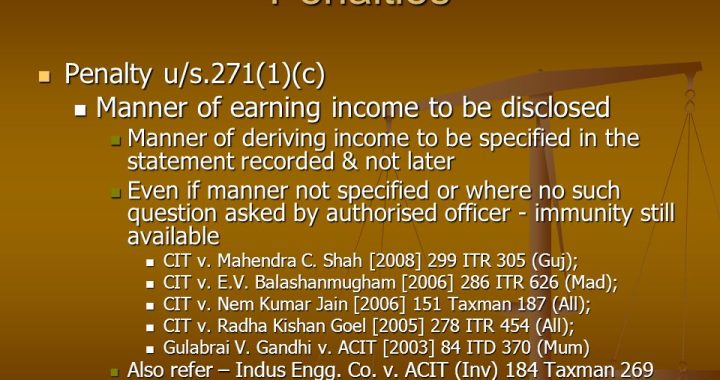Diving Deeper: The Impact of the New Tax Bill on Dairy and Farming Income

The Impact of the New Tax Bill on Dairy and Farming Income
The Income Tax Bill (ITB) 2025 is poised to reshape the agricultural sector, bringing about significant changes in how farming and related activities are taxed in India. This deep dive explores specific aspects of the bill, including potential impacts on dairy farmers, land leasing, and processing activities, offering a more nuanced understanding of how the new legislation could affect various stakeholders.
1. Delving into the Definition of Agricultural Income
Clarifying Ambiguities while defining Agriculture Income
The ITB 2025 refines the definition of agricultural income, aiming to close loopholes and ensure that exemptions benefit genuine farmers. According to the bill, agricultural income includes:
- Income from land used for agricultural purposes.
- Income derived from agricultural operations like cultivation, harvesting, and processing to make the produce marketable.
- Rental income from agricultural land (subject to new conditions discussed below).
What’s Excluded in Definition of Agriculture Income?
Specifically excluded from agricultural income are:
- Income from dairy, poultry, and fisheries.
- Income from any activities that are not directly related to farming but are ancillary or secondary.
Impact: These clarifications will lead to more rigorous scrutiny of income classifications, requiring taxpayers to provide comprehensive documentation to support their claims for tax exemptions.
2. The Dairy Dilemma: Navigating Taxation of Dairy Income
Shift in Tax Status of Dairy Income
The most significant change for dairy farmers is the reclassification of dairy income from tax-exempt agricultural income to taxable income. This alteration means that profits from dairy farming will be subject to standard income tax rates.
Taxation of Dairy Income-Why the Change?
The government argues this change is necessary to address tax evasion, where wealthy individuals and entities exploit the agricultural income exemption by engaging in commercial dairy operations without paying taxes.
Potential Impacts:
- Reduced Profit Margins: Dairy farmers may experience lower profit margins due to increased tax liabilities. This could be particularly challenging for small and marginal farmers.
- Pricing Adjustments: To offset increased tax burdens, dairy farmers may increase milk prices, potentially impacting consumers.
- Operational Restructuring: Some dairy farms may need to restructure their operations to optimize tax efficiency, which could involve incorporating value-added services or adopting cost-saving technologies.
Tax Planning Recommendations for Dairy Farmers:
- Consult Tax Professionals: Seek advice from tax professionals to understand the new tax obligations and plan accordingly.
- Improve Efficiency: Enhance operational efficiency to reduce costs and increase profit margins.
- Explore Diversification: Consider diversifying income streams through value-added products like cheese or yogurt to increase profitability.
3. Land Leasing and Rental Income: The Urban-Rural Divide
New Tax Rules for land Leasing Rental Income
The ITB 2025 introduces a distinction based on the location of agricultural land for rental income taxation.
- Rural Land: Rental income from agricultural land located in rural areas remains tax-exempt.
- Urban Land: Rental income from agricultural land located in urban areas is now taxable.
Defining “Urban Area”
The definition of an “urban area” is critical here. According to the bill, an urban area is defined as any region within the jurisdiction of a municipality, municipal corporation, cantonment board, or notified area committee, as well as any area within a specified distance from these entities, based on population thresholds.
Impacts:
- Increased Tax Burden: Landowners leasing agricultural land in urban areas will face new tax liabilities.
- Land Use Changes: Some landowners may shift from leasing land for agricultural purposes to other, more profitable uses, potentially affecting the availability of farmland in urban peripheries.
- Rental Agreement Adjustments: Lease agreements may need to be renegotiated to account for the new tax liabilities, potentially impacting both landowners and tenant farmers.
- Processing Agricultural Produce: Balancing Exemption and Taxation
Distinguishing Basic and Value-Added Processes
The ITB 2025 differentiates between basic processing activities and value-added processes.
- Basic Processing: Activities like cleaning, drying, and sorting agricultural produce remain tax-exempt.
- Value-Added Processing: Activities that add value to the produce, such as packaging, branding, or converting it into processed foods, are now taxable.
Impacts:
- Small-Scale Processors: Small processors who previously enjoyed tax exemptions may now face tax liabilities.
- Agribusiness: Larger agribusinesses involved in extensive processing and branding will be subject to increased tax obligations.
- Technological Upgrades: Companies may invest in advanced processing technologies to reduce costs and improve efficiency in taxed processes.
- Commercial Nurseries: Differentiating Scale and Purpose
Taxing Large-Scale Agri business Operations
While income from traditional nurseries remains tax-free, the ITB 2025 taxes income from large-scale commercial nurseries. This distinction reflects a move towards taxing larger agribusiness operations that may not rely solely on traditional farming practices.
Impacts:
- Commercial Nurseries: Large nurseries will now be taxed, impacting their profitability and possibly leading to price increases for ornamental plants, seedlings, and other nursery products.
- Investment Decisions: New investments in commercial nurseries may be affected, with investors factoring in the new tax implications.
Strategic Considerations for Farmers and Agribusinesses
To navigate the changes introduced by the ITB 2025, farmers and agribusinesses should consider the following strategies:
- Comprehensive Record-Keeping: Maintain detailed and accurate records of all agricultural activities, income, and expenses to support tax filings.
- Tax Planning: Engage with tax advisors to develop tax-efficient strategies and ensure compliance with the new regulations.
- Operational Efficiency: Streamline operations to reduce costs and increase profit margins.
- Diversification: Explore opportunities to diversify income streams and reduce reliance on activities subject to higher tax rates.
- Technological Adoption: Invest in technology to improve productivity, efficiency, and value addition.
- Collaboration: Collaborate with other farmers and agribusinesses to share knowledge, resources, and best practices.
Adapting to the New Tax Landscape Post Income Tax Bill 2025
The ITB 2025 is set to redefine the agricultural tax landscape in India, requiring farmers and agribusinesses to adapt to the new regulations. While the changes may present challenges, they also offer opportunities for improved efficiency, innovation, and sustainable growth. By understanding the implications of the bill and adopting proactive strategies, stakeholders can navigate the new tax environment and continue to thrive in the agricultural sector.


 ITAT Amritsar: No Section 269SS Violation for One-Time Cash Payment Before Sub-Registrar
ITAT Amritsar: No Section 269SS Violation for One-Time Cash Payment Before Sub-Registrar  Tax Officials Unleash Digital Dragnet: How New Raid Powers Redefine Privacy, Property Rights in India and likely to Fuel Corruption
Tax Officials Unleash Digital Dragnet: How New Raid Powers Redefine Privacy, Property Rights in India and likely to Fuel Corruption  Income Tax Department Rewards for Reporting Tax Evasion: A Comprehensive Guide
Income Tax Department Rewards for Reporting Tax Evasion: A Comprehensive Guide  Forfeiture of Gratuity by Employer- What are the Remedies for an employee- Can employer be challenged?
Forfeiture of Gratuity by Employer- What are the Remedies for an employee- Can employer be challenged?  Employer can forfeit gratuity of an employee in case of moral turpitude
Employer can forfeit gratuity of an employee in case of moral turpitude  Bombay High Court Upholds Section 271(1)(c) Penalty for Deliberate Non-Disclosure
Bombay High Court Upholds Section 271(1)(c) Penalty for Deliberate Non-Disclosure